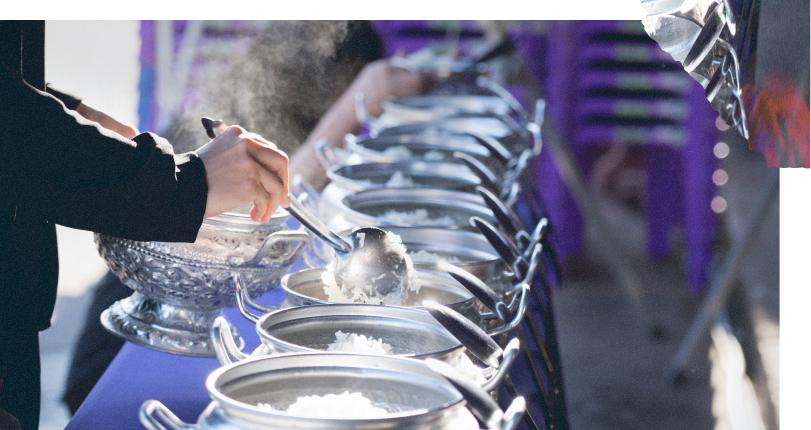Charity is a big part of the religion of Islam as per the third pillar, Zakat.
Zakat is a compulsory donation that all adult Muslims who meet the nisab threshold must pay, but it is often confused with Zakat al-Fitr as a result of the similar names.
Zakat and Zakat al-Fitr are two different charitable donations, although both are compulsory under the third pillar. For those who are unsure of the differences between the two, ILM explains what Zakat al-Fitr is, why it’s paid, how it’s paid and who pays it.
Like Zakat, Zakat al-Fitr is an obligatory charity donation all able Muslims must pay, although that’s where the similarities between the two end. Below is a summary of what Zakat and Zakat al-Fitr are.
Zakat is a compulsory donation made by those whose personal wealth exceeds the nisab threshold. Should an adult Muslim meet the nisab threshold and maintain their wealth for a full lunar year, they are required to donate 2.5% of their wealth to charity. There are specific requirements outlining who is eligible to receive Zakat payments, but all share the same goal of supporting those less fortunate. Zakat is based on the value of silver and gold and, as such, how much a person is required to pay fluctuates each year, hence the use of a Zakat calculator. You can donate zakat at any time of the year.
Zakat al-Fitr is a compulsory donation made by all Muslims – regardless of age – provided they or the head of their household has food in excess of what they need. Only those with less than one Sa’ (equivalent to around 3kg) of staple food in excess of their means are exempt from paying Zakat al-Fitr. Historically, Zakat al-Fitr was donated in the form of one Sa’ of staple foods per person, but it is now more common for each person to make a monetary donation equivalent to one Sa’ of staple foods. The donation is £5 per person and must be paid during Ramadhan prior to the commencement of Eid al-Fitr prayers.
Jarir ibn Abdullah رضي الله عنه narrates from the Prophet ﷺ “The fast of Ramadan is suspended between the earth and heavens until Zakat al-Fitr is paid” (al-Jamia al-Saghir - Tabarani)

Fitrana is another word for Zakat al-Fitr. It is commonly used to avoid the mix up of Zakat and Zakat al-Fitr. The Fitrana meaning is exactly the same as the Zakat al-Fitr meaning and is done to support those less fortunate by sharing what we have and showing compassion and solidarity. When you pay Fitrana, you are pleasing Allah (SWT), purifying your fortune and becoming a better Muslim whilst alleviating the pressure imposed on those who are impoverished and/or hungry.
When you donate your Fitrana through ILM, we will use it to provide food for those who are living in hunger around the world.
The Prophet Muhammad (PBUH) dictated that each Muslim should pay one Sa’ in Zakat al-Fitr every year. It’s common for most Muslims to pay their Zakat al-Fitr to a charity online, but as per the Prophet’s words, the amount payable must be the equivalent of one Sa’. The cost of Zakat al-Fitr varies year on year in line with the price of one Sa’ of staple food items. The Zakat al-Fitr amount in 2022 is £5.
You may pay your Fitrana to ILM using our donations page.
Zakat al-Fitr donations must be paid during Ramadhan, prior to the commencement of the Eid prayers. Many Muslims choose to pay their Fitrana during the last 10 nights of Ramadhan because it is thought the rewards for donating at this time of year are equal to the rewards of a thousand months of good deeds.
Fitrana is a time-sensitive donation and must be paid during the holy month of Ramadhan. If you miss a payment, it cannot be made up at a later date.
Ramadhan is expected to commence on Saturday 2nd April and conclude on Sunday 1st April, although this is subject to the sighting of the moon. With this in mind, you must pay your Fitrana between those dates.